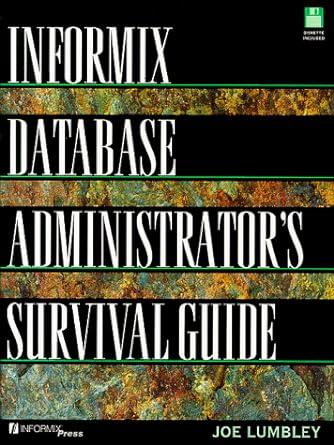Question
Student_functions.c /* This function takes a string as input and removes * leading and trailing whitespace including spaces * tabs and newlines. It also removes
Student_functions.c
/* This function takes a string as input and removes * leading and trailing whitespace including spaces * tabs and newlines. It also removes multiple internal * spaces in a row. Arrays are passed by reference. */ #include #include #include "student_functions.h" void Clean_Whitespace(char str[]) { // do your work here return; } /* This function takes a string and makes the first * letter of every word upper case and the rest of the * letters lower case */ void Fix_Case(char str[]) { // do your work here return; } /* this function takes a string and returns the * integer equivalent */ int String_To_Year(char str[]) { // do your work here return 0; } /* this function takes the name of a * director as a string and removes all but * the last name. Example: * "Bucky Badger" -> "Badger" */ void Director_Last_Name(char str[]) { // do your work here return; } /* this function takes the a string and returns * the floating point equivalent */ float String_To_Rating(char str[]) { // do your work here return 0.0; } /* this function takes a string representing * the revenue of a movie and returns the decimal
* equivlaent. The suffix M or m represents millions, * K or k represents thousands. * example: "123M" -> 123000000 */ long long String_To_Dollars(char str[]) { // do your work here return 0; } /* This function takes the array of strings representing * the csv movie data and divides it into the individual * components for each movie. * Use the above helper functions. */ void Split(char csv[10][1024], int num_movies, char titles[10][1024], int years[10], char directors[10][1024], float ratings[10], long long dollars[10]) { // do your work here return; } /* This function prints a well formatted table of * the movie data * Row 1: Header - use name and field width as below * Column 1: Id, field width = 3, left justified * Column 2: Title, field width = lenth of longest movie + 2 or 7 which ever is larger, left justified, first letter of each word upper case, remaining letters lower case, one space between words * Column 3: Year, field with = 6, left justified * Column 4: Director, field width = length of longest director last name + 2 or 10 (which ever is longer), left justified, only last name, first letter upper case, remaining letters lower case * column 5: Rating, field width = 6, precision 1 decimal place (e.g. 8.9, or 10.0), right justified * column 6: Revenue, field width = 11, right justified */ void Print_Table(int num_movies, char titles[10][1024], int years[10], char directors[10][1024], float ratings[10], long long dollars[10]) { // do your work here return; }
student_function.h
#ifndef __student_functions__ #define __student_functions__ /* This function takes a string as input and removes * leading and trailing whitespace including spaces * tabs and newlines. It also removes multiple internal * spaces in a row. Arrays are passed by reference. */ void Clean_Whitespace(char str[]); /* This function takes a string and makes the first * letter of every word upper case and the rest of the * letters lower case */ void Fix_Case(char str[]); /* this function takes a string and returns the * integer equivalent */ int String_To_Year(char str[]); /* this function takes the name of a * director as a string and removes all but * the last name. Example: * "Bucky Badger" -> "Badger" */ void Director_Last_Name(char str[]); /* this function takes the a string and returns * the floating point equivalent */ float String_To_Rating(char str[]); /* this function takes a string representing * the revenue of a movie and returns the decimal * equivlaent. The suffix M or m represents millions, * K or k represents thousands. * example: "123M" -> 123000000 */ long long String_To_Dollars(char str[]); /* This function takes the array of strings representing * the csv movie data and divides it into the individual * components for each movie */ void Split(char csv[10][1024], int num_movies, char titles[10][1024], int years[10], char directors[10][1024], float ratings[10], long long dollars[10]); /* This function prints a well formatted table of * the movie data * Row 1: Header - use name and field width as below * Column 1: Id, field width = 3, left justified * Column 2: Title, field width = lenth of longest movie + 2 or 7 which ever is larger, left justified * Column 3: Year, field with = 6, left justified * Column 4: Director, field width = length of longest director last name + 2 or 10 (which ever is longer), left justified * column 5: Rating, field width = 6, precision 1 decimal place (e.g. 8.9, or
10.0), right justified * column 6: Revenue, field width = 11, right justified */ void Print_Table(int num_movies, char titles[10][1024], int years[10], char directors[10][1024], float ratings[10], long long dollars[10]); #endif
driver.c
#include #include "student_functions.h" void Read_CSV(char *filename, char csv[10][1024], int *num_movies) { FILE *fp; fp = fopen(filename, "r"); fscanf(fp, "%d", num_movies); char read_rest_of_line[1024]; fgets(read_rest_of_line, 1024, fp); for (int i=0; i<*num_movies; i++) fgets(csv[i], 1024, fp); fclose(fp); return; } int main() { char csv[10][1024]; // data structure for the entire movie csv file int num_movies; char titles[10][1024]; int years[10]; char directors[10][1024]; float ratings[10]; long long dollars[10]; Read_CSV("movies1.csv", csv, &num_movies); Split(csv, num_movies, titles, years, directors, ratings, dollars); Print_Table(num_movies, titles, years, directors, ratings, dollars); return 0; }
PLS HELP
Step by Step Solution
There are 3 Steps involved in it
Step: 1

Get Instant Access to Expert-Tailored Solutions
See step-by-step solutions with expert insights and AI powered tools for academic success
Step: 2

Step: 3

Ace Your Homework with AI
Get the answers you need in no time with our AI-driven, step-by-step assistance
Get Started


